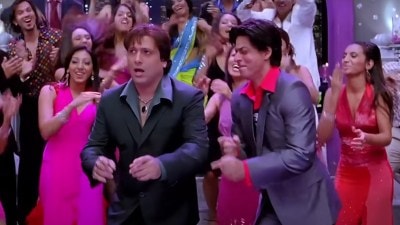- India
- International
Memories of Ferghana
FIVE years to the day, on a mid-May afternoon, I sat in a high-walled Islamic courtyard in Namangan, drinking green tea from a handle-less p...
FIVE years to the day, on a mid-May afternoon, I sat in a high-walled Islamic courtyard in Namangan, drinking green tea from a handle-less pyola, feasting off plump, sweet strawberries. The air was delicious with fat pink roses and nobody mentioned a Juma Namangani though President Karimov had just barely escaped a bomb in Tashkent’s Mustakkliq Maydoni (Freedom Square).
Instead we talked about the special plov of the Ferghana Valley, which adds long green chillies to the mutton, rice and carrots of a regular Central Asian pulao and how I’d enjoy lunch with the hokim (mayor) of Andizhan, Babur’s birthplace, where I was headed via Namangan from Samarkand.
Secretly I thought it quaint that the subaltern Uzbek movement against the Soviets had built up Babur as a national hero, when in fact he’d been kicked out of Andizhan and the Ferghana Valley, right out of Mavr-un-nahar — the doaba between the Amu Darya and Syr Darya, containing Tashkent, Samarkand, Bukhara. (Alexander the Macedon knew it as Transoxiana. What would Kanishka, who once ruled all the land between Mathura and Samarkand, have called it in Kushan?)
HAD Babur not been bounced out of Central Asia by his rival Shaybani Khan, he might never have taken up with the uncles and nobles of Ibrahim Lodi, who invited him to remove Lodi on their behalf. He might have never fought at Panipat in 1526. But in Andizhan, which Indians call Andijan, I’d found Babur mattered terribly to Uzbek pride as a hook on which to hang national identity after mustakkliq from the Soviets in 1991.
Taimur, his ancestor, was buried below a single block of jade in the Guri Amir mosque in Samarkand — across the road from a palpably ITDC-built Hotel Afrosiyab. Taimur now sat on stone thrones and rearing horses in every Uzbek town square, while for Babur, a special task force had been dispatched to Agra, where he was first buried, and to Kabul, where his Afghan wife Mubarika Bibi, later took his bones.
Soil from both graves had been brought to Andizhan and put in a symbolic hilltop grave that had turned overnight into a shrine. The ‘‘grave’’ had a museum nearby of Mughal books and dynastic calendars (some from Delhi’s Chandni Chowk) and the Uzbeks now proudly called themselves ‘‘Babur ke aulad’’ — a fraught phrase for an Indian. A large stone statue of Babur looked over the mountains around Ferghana towards Hind.
Today, however, when Babur’s homeland is importuning the United States to depose Karimov on their behalf, perhaps only Indians might appreciate the irony, just as they would have understood the plight of Uzbeks in their own country in the 75 years of Russian rule before mustakkliq: mosques, madressas and ziyarats were shut down or demolished (in revenge Uzbeks still privately call a toilet ‘‘Santa Maria’’); weddings, circumcisions and even Navruze, the New Year, could not be celebrated with public feasts and the music and dancing that Uzbeks traditionally cherish.
MUSIC and dance? But wasn’t that ‘‘unIslamic’’ in a country celebrating an Islamic revival, I’d thought back then, as I twirled at an Uzbek soiree at Kokand in the Ferghana Valley. My hostess had snatched up a daf (dafli in India) and was dancing slowly to a sad Persian song by Zebunissa ‘Makhfi’, an Uzbek-Tajik favourite. She was a princess of Delhi via Ferghana; Aurangzeb’s daughter, whom he jailed for 20 years in Sali>’’ on that side of the Tian Shan were a fascinating reversal of their Indian pattern. We might ask Karimov today, as he tries to sweep Andizhan under the jihadi rug. Or Barun De, professor of international relations at Tashkent University between 1998 and 2001, who argues in his book Secularism at Bay, that if any Timurid must needs be cast as hero, it should be Akbar. Not Babur, who fought Panipat as jihad.
May 23: Latest News
- 01
- 02
- 03
- 04
- 05



